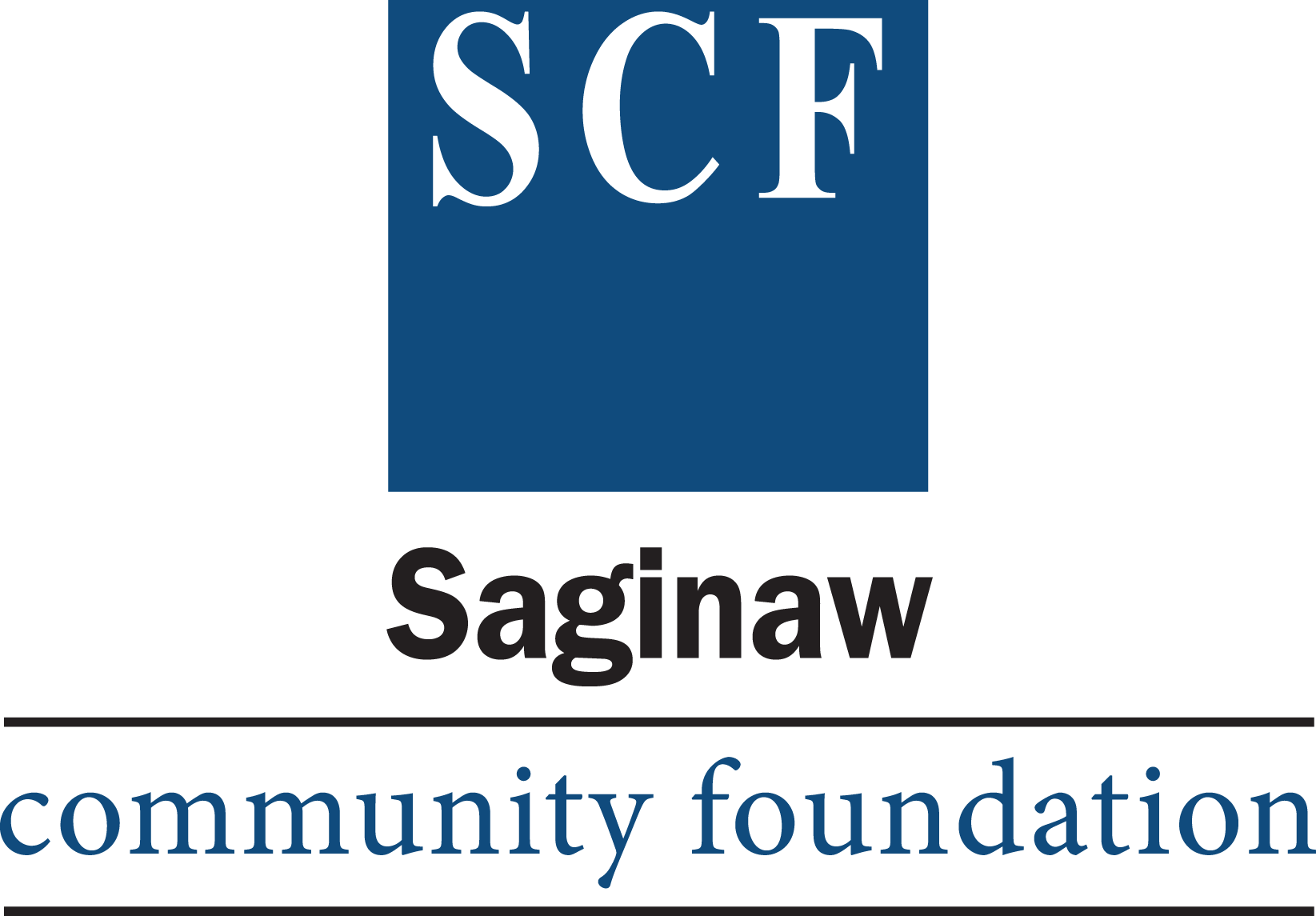
This symposium is designed to ignite lasting change. By bringing together diverse voices and perspectives, we aim to:
- Inspire: Explore innovative strategies and best practices for fostering belonging and understanding.
- Empower: Equip attendees with the knowledge and tools to drive meaningful change within their local communities.
- Collaborate: Build a strong community of like-minded individuals committed to advancing inclusion and diversity.
- Act: Encourage participants to translate ideas into action through tangible initiatives and measurable outcomes.
Symposium Details
Date: Wednesday, January 29, 2025
Location: Saginaw Valley State University Curtiss Hall • 7400 Bay Rd., University Center, Mich. 48710
Time: 8 a.m. – 6 p.m. (Reception to follow)
Explore 16 Exciting Workshops (Details below)
Thank you sponsors!
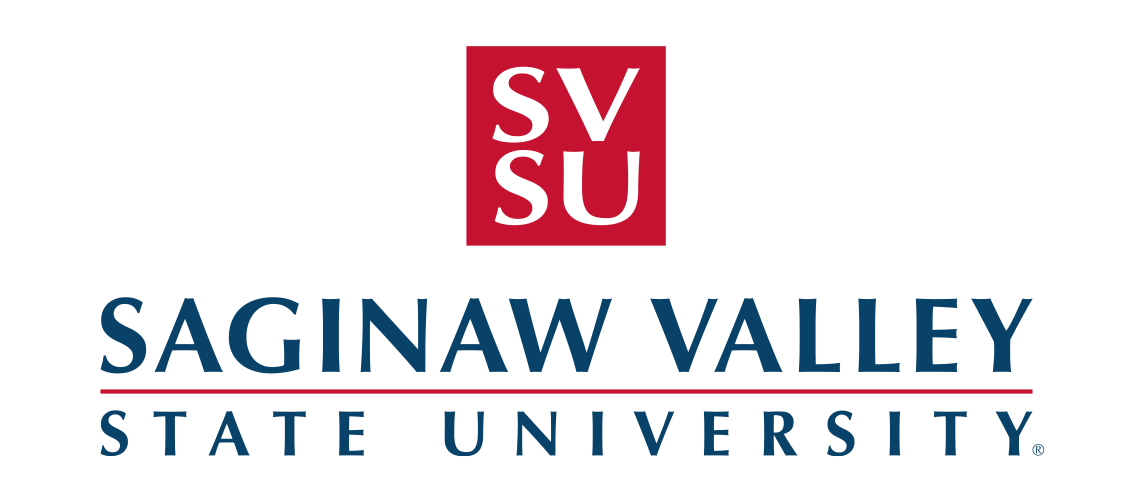
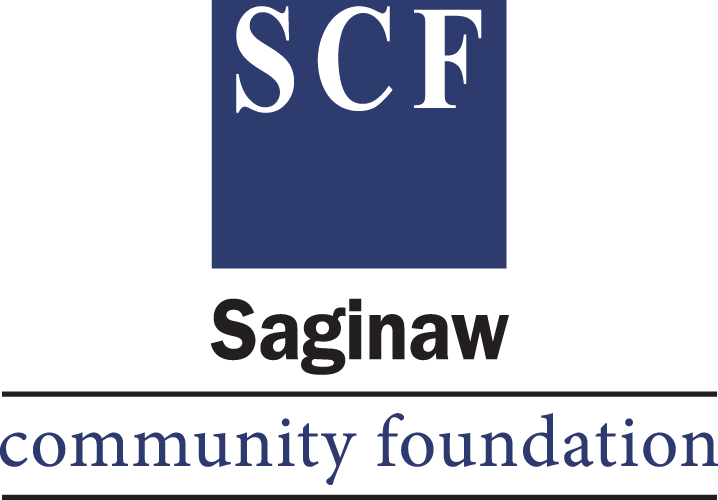
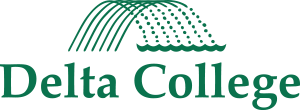

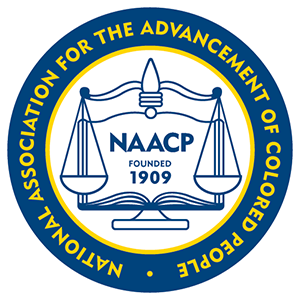
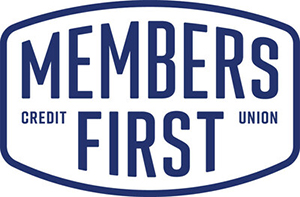

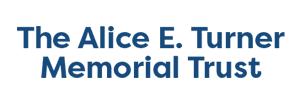
Featured Plenary Speakers
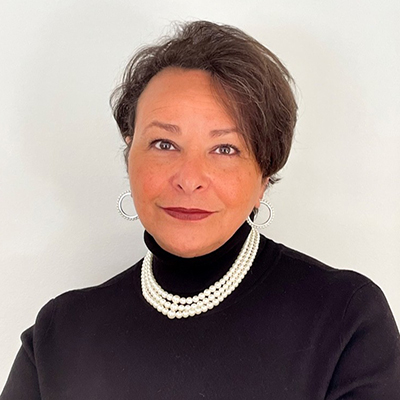
Dear Beloved Community: When Will “They” and “Us” Become “We" Paulette Granberry Russell, J.D., President, National Association of Diversity Officers in Higher Education
Plenary Overview: Paulette Granberry Russell, a renowned leader in diversity, equity, and inclusion, will inspire attendees with a call to action to commit to a DEI-related goal within the next 3-6 months. Drawing from her extensive career in higher education and advocacy, she will challenge participants to take actionable steps to foster equitable and inclusive environments.
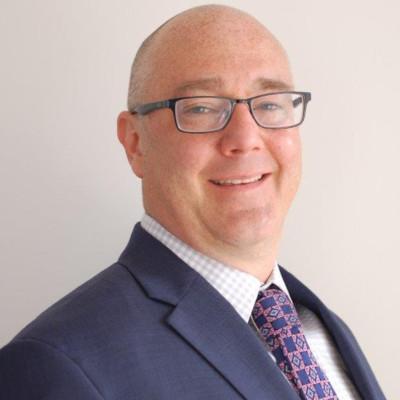
Inspired to Act: Reshaping Education Through Equity and Excellence Dr. Michael H. Gavin, President, Delta College
Dr. Michael Gavin will share insights on how community colleges can address societal inequities through innovative strategies that increase student success. He will present actionable methods to improve enrollment, retention, and equity while fostering inclusive learning environments.
Concurrent Break-Out Workshops
9:30 – 10:30 a.m Workshops
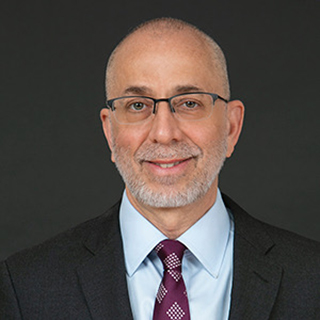
Empowering Community: An Introduction to Restorative Justice and Practices in Higher Education Anthony Palatta, D.D.S., Ed.D., Consultant and Coach PalattaSolutions
DOWNLOAD PRESENTATION
(THIS WORKSHOP REPEATS AT 1:45 P.M.)
This workshop introduces Restorative Justice (RJ) as a transformative tool in higher education. Participants will explore the history, key principles and application of RJ processes to foster equity, empathy and accountability.
Objectives
- Understand the origins and evolution of restorative justice
- Learn the three levels of restorative justice processes
- Explore the use of RJ in academic environments to build inclusive communities
Learning Outcomes
Participants will gain practical knowledge of RJ principles and strategies to implement restorative practices in their institutions.
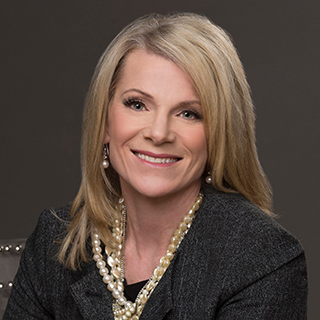
Integrating a DEI Framework and Culture into Your Strategic Plan Lee Ann Keller, CEO and Chief Strategist Omni Tech
The landscape of Diversity, Equity, and Inclusion (DEI) has evolved significantly, expanding to encompass justice, belonging, accessibility, culture and more. Organizations today face the challenge of creating a culture and deliverables that are not only inclusive and welcoming but also align with their broader mission. However, developing both a comprehensive Strategic Plan and a separate DEI Plan can often exceed an organization’s capacity. This workshop will explore how organizations can effectively integrate DEI principles into their strategic planning process, fostering belonging and accessibility for both internal staff and the communities they serve. Participants will learn practical strategies to align organizational goals with DEI values, ensuring that equity and inclusion become foundational elements of their strategic direction.
Objectives
- Examine the expanding scope of DEI to include justice, belonging, accessibility and culture
- Identify challenges and opportunities in integrating DEI principles into organizational strategic plans
- Explore best practices for embedding DEI values into organizational mission, vision and objectives
- Develop strategies to create a cohesive plan that fosters belonging and accessibility for diverse stakeholders
- Learn how to evaluate and measure the impact of DEI initiatives within a strategic planning framework
Learning Outcomes
By the end of this workshop, participants will:
- Gain a comprehensive understanding of how DEI principles intersect with strategic planning
- Recognize the importance of integrating DEI values into organizational culture and deliverables
- Develop actionable strategies for aligning DEI initiatives with their organization’s mission and goals
- Acquire tools to assess and enhance belonging, accessibility, and equity within their organizational plans
- Build confidence in leading conversations and initiatives that prioritize DEI in strategic planning processes
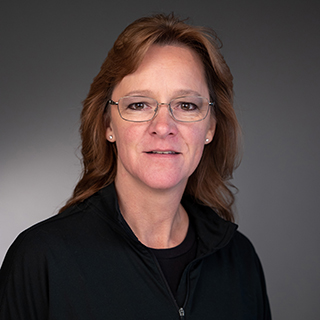
Ableism: Do You Know It When You See It? Terri Robbins, Community Services Director Disability Network Mid-Michigan
DOWNLOAD PRESENTATION
Ableism, the discrimination and social prejudice against people with disabilities, perpetuates harmful beliefs that typical abilities are superior and that disabilities inherently require “fixing.” This workshop will unpack the roots of ableism, explore how it manifests in various social and institutional contexts, and provide actionable strategies to foster equity and inclusion for individuals with disabilities. Through engaging discussions and interactive activities, participants will gain a deeper understanding of ableism and their role in dismantling it, ensuring all individuals are valued and respected regardless of their abilities.
Objectives
- Define ableism and understand its historical, cultural, and societal roots
- Examine the impact of ableism on individuals with disabilities, including in education, the workplace and public spaces
- Explore the intersectionality of ableism with other forms of discrimination, such as racism, sexism and ageism
- Identify personal and organizational strategies to challenge and mitigate ableism in daily interactions and systemic practices
- Develop skills to advocate for equitable policies and practices that support individuals with disabilities
Learning Outcomes
By the end of the workshop, participants will:
- Demonstrate a clear understanding of ableism and its implications for individuals and society
- Recognize and challenge their own biases and assumptions about disabilities
- Apply inclusive language and practices to create accessible and equitable environments
- Develop a personal or professional action plan to address ableism within their spheres of influence
Build confidence in advocating for the rights and dignity of individuals with disabilities in diverse settings.
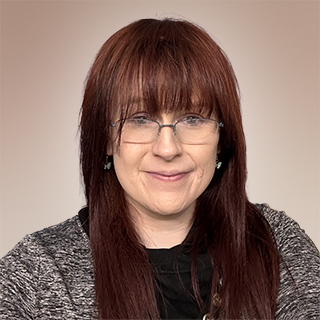
Interventions for Unconscious Bias Anna Pope, Assistant Professor, Psychology SVSU
Unconscious bias continues to be a challenging topic to discuss and address, even as awareness grows. This workshop will delve into what unconscious bias is – and what it isn’t – while exploring practical, evidence-based interventions to reduce its impact. Participants will engage in meaningful discussions about the origins of unconscious bias, its influence on decision-making, and strategies for mitigating its effects on themselves and others. By fostering a deeper understanding and equipping attendees with actionable tools, this session aims to promote more equitable and inclusive behaviors and environments.
Objectives
- Define unconscious bias and differentiate it from related concepts such as prejudice and discrimination
- Explore the psychological and social mechanisms that contribute to the formation of unconscious biases
- Provide strategies for recognizing and addressing unconscious biases in personal and professional contexts
- Develop skills to facilitate productive discussions about unconscious bias in diverse settings
- Identify evidence-based interventions to reduce the impact of unconscious bias at individual and organizational levels
Learning Outcomes
By the end of the workshop, participants will:
- Demonstrate a foundational understanding of unconscious bias as a psychological construct
- Articulate the importance of addressing unconscious bias to promote equity and inclusion
- Apply practical strategies for identifying and mitigating unconscious bias in everyday interactions
- Facilitate thoughtful and constructive conversations about unconscious bias in their spheres of influence
- Integrate evidence-based interventions to foster more inclusive and equitable decision-making processes
10:45 – 11:45 a.m Workshops
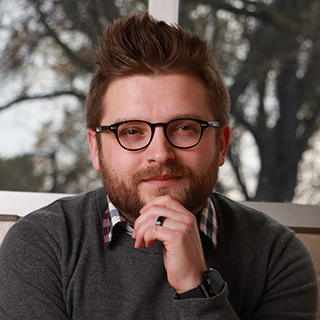
How We Can Show Up: A Conversation About Allyship & Activism with PFLAG Donny Winter, Associate Professor, Delta College; PFLAG Board Director
This engaging and informative workshop explores the history and mission of PFLAG, a renowned LGBTQ+ non-profit organization dedicated to supporting LGBTQ+ individuals and their families through advocacy, education, and community building. Participants will discover practical ways to demonstrate allyship and courageously support members of the LGBTQ+ community.
The session will also highlight the local efforts of PFLAG Great Lakes Bay Region in advancing education, advocacy, and support in our immediate area. Attendees will gain valuable tools to navigate allyship effectively and be provided access to a wealth of online resources to continue their learning journey.
Objectives
- Understand the history and mission of PFLAG as a cornerstone LGBTQ+ advocacy organization
- Explore the local initiatives of PFLAG Great Lakes Bay Region in fostering inclusivity and support
- Identify both subtle and bold strategies for effective allyship and activism in personal and professional settings
- Access and utilize online resources to continue learning and supporting the LGBTQ+ community
Learning Outcomes
By the end of this workshop, participants will be able to:
- Explain the significance of PFLAG’s mission and its impact on the LGBTQ+ community
- Demonstrate a deeper understanding of allyship and how to apply it in daily life
- Describe specific actions to support and advocate for LGBTQ+ individuals locally and beyond
- Utilize online tools and resources to further their knowledge and allyship efforts
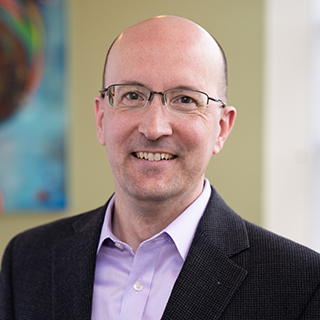
Looking Ahead from Election 2024: Community Empowerment in a New World Jeff Williams, Director, Consulting Services Dorothy A. Johnson Center for Philanthropy, GVSU
DOWNLOAD PRESENTATION
(THIS WORKSHOP REPEATS AT 1:45 P.M.)
This workshop will explore insights gained from the 2024 election and their implications for nonprofits, foundations, and communities. Jeff Williams, Director of Consulting Services at the Dorothy A. Johnson Center for Philanthropy, will analyze the election results and provide a forward-looking perspective for 2025. The session will highlight 15 key themes and discuss how they can deepen understanding and foster collaboration within Michigan communities.
Objectives
- Examine the key takeaways from the 2024 election results
- Explore the implications of election outcomes for nonprofits and philanthropic organizations
- Identify strategies to leverage emerging trends for community empowerment
Learning Outcomes
By the end of this workshop, participants will:
- Understand the 15 key themes shaping the post-election landscape
- Identify actionable insights for nonprofits and foundations to address community challenges
- Gain tools to enhance collaboration and engagement across diverse communities
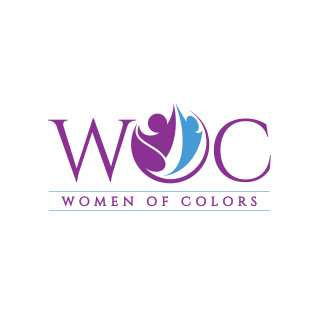
From Racial Disparities to Solutions: Community-Centered Models for Behavioral Health Equity A panel discussion featuring represntatives from Women of Colors facilitated by Dr. Pamela Ross McClain
Learn how Women of Colors (WOC) addresses behavioral health disparities through culturally responsive advocacy and community-driven resilience strategies. This session highlights impactful initiatives funded by the Michigan Health Endowment Fund.
Objectives
- Identify systemic challenges in behavioral health care
- Explore culturally tailored advocacy models
- Understand the role of community collaborations in addressing health inequities
Learning Outcomes
Participants will leave equipped with strategies to integrate lived experiences and peer support into behavioral health systems
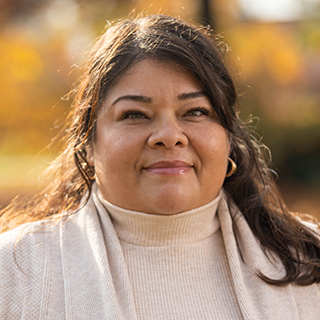
Inclusion begins with I Dr. Gina Wilson, Ed.D., Assistant Professor/ Program Director Central Michigan University
DOWNLOAD PRESENTATION
This session empowers community members and leaders with the skills and knowledge to create and sustain inclusive, equitable, and culturally responsive organizations and initiatives. Participants will engage in intentional reflection, explore actionable strategies and deepen their understanding of leadership practices that foster belonging and meaningful engagement. Key areas of focus include:
- The principles of inclusive practices that honor diverse perspectives and promote a sense of belonging
- Techniques for introspection and intentionality to align personal and organizational goals with equity-focused leadership
- Models of congruent leadership, where values and actions align to ensure authentic and impactful community engagement
By the end of the session, attendees will leave equipped with practical tools and strategies to cultivate environments where all voices are heard, valued, and empowered, driving sustainable change within their communities.
Objectives
- Define and understand the principles of inclusive leadership and community engagement
- Explore the importance of aligning leadership actions with equity-driven values
- Identify strategies to foster belonging and amplify diverse voices in organizational and community settings
- Reflect on personal leadership practices and their alignment with equity and inclusion goals
- Learn how to implement actionable strategies to drive meaningful and sustainable change in diverse communities
Learning Outcomes
By the conclusion of this workshop, participants will:
- Demonstrate an understanding of inclusive practices and their importance in leadership and community engagement
- Analyze their own leadership approaches and identify areas for growth in fostering equity and belonging
- Apply practical tools to promote cultural responsiveness and inclusivity within their communities or organizations
- Develop an action plan to align leadership practices with values that prioritize equity and engagement
- Gain confidence in creating environments where diverse voices are genuinely valued and included in decision-making processes
1:45 – 2:45 p.m Workshops

Empowering Community: An Introduction to Restorative Justice and Practices in Higher Education Anthony Palatta, D.D.S., Ed.D., Consultant and Coach PalattaSolutions
DOWNLOAD PRESENTATION
(REPEAT WORKSHOP FROM MORNING SESSIONS)
This workshop introduces Restorative Justice (RJ) as a transformative tool in higher education. Participants will explore the history, key principles and application of RJ processes to foster equity, empathy and accountability.
Objectives
- Understand the origins and evolution of restorative justice
- Learn the three levels of restorative justice processes
- Explore the use of RJ in academic environments to build inclusive communities
Learning Outcomes
Participants will gain practical knowledge of RJ principles and strategies to implement restorative practices in their institutions.
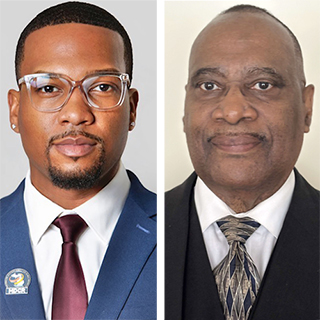
Know Your Rights Todd Walker, Department Specialist, Michigan Department of Civil Rights & Terry Pruitt, President, NAACP Saginaw Branch
This session explores Michigan’s Elliott-Larsen Civil Rights Act and its relevance in bridging divides and fostering inclusivity. Attendees will gain tools to address challenges faced by marginalized groups and foster belonging in their communities.
Objectives
- Understand the historical impact of the Elliott-Larsen Civil Rights Act
- Address systemic inequities impacting marginalized communities
- Develop strategies to promote allyship and unity
Learning Outcomes
Participants will leave inspired to create equitable communities through actionable strategies.

Looking Ahead from Election 2024: Community Empowerment in a New World Jeff Williams, Director, Consulting Services Dorothy A. Johnson Center for Philanthropy, GVSU
DOWNLOAD PRESENTATION
(REPEAT WORKSHOP FROM MORNING SESSIONS)
This workshop will explore insights gained from the 2024 election and their implications for nonprofits, foundations, and communities. Jeff Williams, Director of Consulting Services at the Dorothy A. Johnson Center for Philanthropy, will analyze the election results and provide a forward-looking perspective for 2025. The session will highlight 15 key themes and discuss how they can deepen understanding and foster collaboration within Michigan communities.
Objectives
- Examine the key takeaways from the 2024 election results
- Explore the implications of election outcomes for nonprofits and philanthropic organizations
- Identify strategies to leverage emerging trends for community empowerment
Learning Outcomes
By the end of this workshop, participants will:
- Understand the 15 key themes shaping the post-election landscape
- Identify actionable insights for nonprofits and foundations to address community challenges
- Gain tools to enhance collaboration and engagement across diverse communities
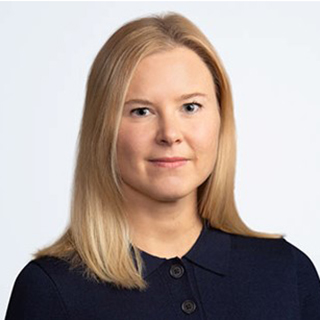
Employment Law and DEI Initiatives Allyson Terpsma, Labor & Employment Attorney Warner Norcross + Judd LLP
This workshop explores the dynamic intersection of Employment Law and Diversity, Equity, and Inclusion (DEI) efforts. Participants will begin with a concise overview of equal employment laws before examining critical Supreme Court cases, including the 2023 affirmative action decision and the anticipated reverse discrimination case, and their implications for DEI strategies. Practical and legally compliant DEI approaches will also be discussed, providing actionable insights for organizations.
Objectives
- To provide participants with an understanding of the legal foundations relevant to DEI efforts
- To analyze recent and upcoming Supreme Court decisions and their potential impacts on employment practices
- To offer practical, compliant strategies for advancing DEI initiatives in the workplace
Learning Outcomes
By the end of this workshop, participants will:
- Understand key employment laws and how they relate to DEI efforts
- Recognize the implications of significant Supreme Court rulings on DEI strategies
- Identify practical DEI initiatives that align with current legal requirements
- Gain tools to navigate potential legal challenges while fostering an inclusive work environment
3 – 4 p.m Workshops
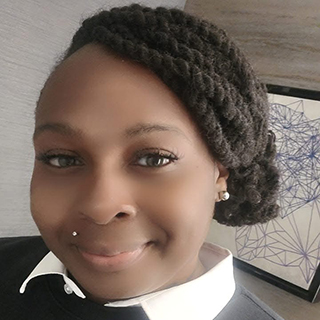
Creating an Inclusive Community Cherie Long, CEO/Founder Heart of the City Development Center
This workshop focuses on the importance of inclusion and the rights of individuals with intellectual disabilities. Participants will explore strategies for fostering inclusivity across educational, professional, and social environments while gaining insight into the significant role community organizations, such as Heart of the City, play in supporting inclusion efforts. Through interactive discussions and actionable guidance, this session aims to inspire a collective commitment to creating a more unified, equitable society where all individuals are valued and respected.
Objectives
- Educate participants on the significance of inclusion and the rights of individuals with intellectual disabilities
- Provide practical strategies for fostering an inclusive environment in educational, professional, and social settings
- Highlight the contributions and impact of community organizations, like Heart of the City, in advancing inclusion efforts
Learning Outcomes
By the end of this workshop, participants will:
- Gain an understanding of the barriers individuals with intellectual disabilities face and learn approaches to overcome them
- Learn actionable steps to advocate for inclusion within their own communities
- Develop a greater appreciation for diversity and a commitment to fostering a more inclusive society
Through this workshop, we aim to inspire participants to champion inclusion, ensuring individuals with intellectual disabilities are provided with the opportunities, respect, and support they deserve. Together, we can build stronger, more unified communities.
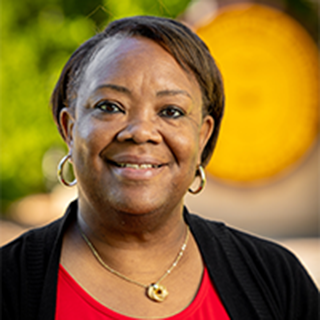
Mindfully Managing the Burnout Burden Dr. Nikita Murry, Director for Diversity Education Central Michigan University
This interactive workshop explores the common factors contributing to professional burnout and its impact on overall well-being. Participants will learn to identify areas in their lives that exacerbate burnout and will gain practical strategies for managing it. Using mindfulness as a foundation, the session provides actionable tools to support professional, social, psychological, and physical wellness.
Objectives
- Define burnout and its effects on personal and professional well-being
- Explore mindfulness as a tool for mitigating the impacts of burnout
- Identify individual areas of vulnerability to burnout and develop strategies for managing them effectively
Learning Outcomes
By the end of the workshop, participants will:
- Recognize early signs of burnout and understand its root causes
- Demonstrate mindfulness practices that can reduce stress and enhance resilience
- Create a personalized plan to maintain balance and wellness in their professional and personal lives
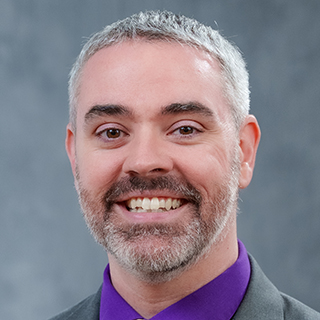
Engaging White Men Chris DeEulis, Director of Belonging, Equity, Diversity & Inclusion Delta College
DOWNLOAD PRESENTATION
This workshop examines the critical role White men play in advancing diversity, equity, and inclusion (DEI) efforts and explores how they can actively participate as allies and co-conspirators in creating meaningful change. Through guided discussions, participants will analyze historical and contemporary examples of White individuals who have contributed to justice and equity initiatives.
The session will also focus on identifying and challenging elements of White Supremacy Culture that perpetuate inequities in organizations and society. Participants will engage with strategies to effectively involve White men in DEI work, emphasizing their potential as partners in fostering an inclusive and equitable culture.
Objectives
- To analyze the historical and ongoing contributions of White men in justice and DEI efforts
- To provide strategies for effectively engaging White men in DEI initiatives as allies and co-conspirators
- To foster collaborative approaches for creating systemic change
Learning Outcomes
By the end of this workshop, participants will:
- Understand the historical and current roles White men play in DEI initiatives
- Identify actionable strategies for engaging White men in meaningful and transformative DEI work
- Develop practical approaches to build partnerships that promote justice, belonging, and inclusion
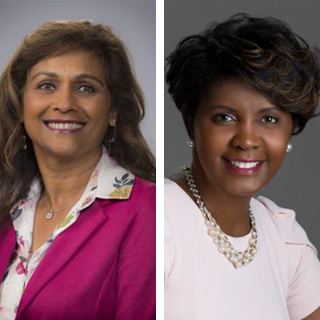
Maximizing the Potential of ERGs for Inclusion Shruti Bahadu, Global Leader for Employee Experience Dow & Tiffany D. Torain, J.D., L.L.M., Inclusion, Diversity and Equity Relationship Manager,Office of Inclusion Dow
Maximizing the Potential of Your ERGs for Inclusion offers an insightful overview of Dow’s Employee Resource Groups (ERGs), showcasing how they can drive employee satisfaction, foster business growth, and serve as powerful platforms for advocacy and action. This workshop will explore strategies to harness the full potential of ERGs and create a workplace culture that is inclusive, supportive, and empowering for all employees.
Objectives
- Provide an overview of Dow’s Employee Resource Groups and their role in driving organizational success
- Highlight the impact of ERGs on employee satisfaction and workplace inclusion
- Offer actionable strategies to leverage ERGs as platforms for business growth, advocacy, and meaningful action
Learning Outcomes
By the end of this workshop, participants will:
- Gain a comprehensive understanding of the purpose and benefits of Employee Resource Groups
- Learn how to maximize the potential of ERGs to create a more inclusive and supportive workplace
- Develop strategies to use ERGs as catalysts for advocacy, employee engagement, and organizational success
This workshop will equip participants with the tools and insights to unlock the full value of ERGs, ensuring they contribute to a culture of inclusion and belonging while driving meaningful organizational impact.
